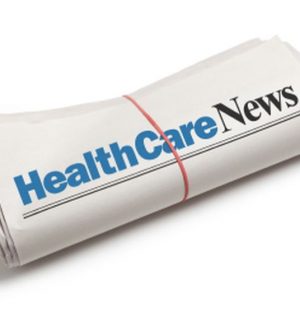- Recognizing the Signs of Hypothyroidism
- 10 Strategies to Overcome Insomnia
- Could Artificial Sweeteners Be Aging the Brain Faster?
- Techniques for Soothing Your Nervous System
- Does the Water in Your House Smell Funny? Here’s Why
- Can a Daily Dose of Apple Cider Vinegar Actually Aid Weight Loss?
- 6 Health Beverages That Can Actually Spike Your Blood Sugar
- Treatment Options for Social Anxiety Disorder
- Understanding the Connection Between Anxiety and Depression
- How Daily Prunes Can Influence Cholesterol and Inflammation
Health Highlights: Jan. 22, 2021

Dr. Anthony Fauci Feels ‘Liberated’ in Biden Administration
After nearly a year of being muzzled about the coronavirus pandemic by the Trump administration, Dr. Anthony Fauci said Thursday that it’s “liberating” to be part of an administration that bases its decisions on science.
“One of the new things in this administration is, if you don’t know the answer, don’t guess,” the nation’s top infectious disease expert said during a White House briefing on Thursday, the Associated Press reported. “Just say you don’t know the answer.”
“The idea that you can get up here and talk about what you know and what the science is … it is something of a liberating feeling,” Fauci told reporters. He was first on the podium at White House press secretary Jen Psaki’s daily briefing, the AP reported.
Fauci said it was difficult at times to work for Trump, who refused to acknowledge the severity of the pandemic, didn’t encourage mask-wearing, and often promoted unproven treatments for COVID-19, such as a malaria drug and injecting disinfectant.
“It was very clear that there were things that were said, be it regarding things like hydroxychloroquine and other things, that really was uncomfortable because they were not based in scientific fact,” said Fauci, who is Biden’s chief medical advisor and directs the National Institute of Allergy and Infectious Disease.
The 80-year-old scientist added that he took “no pleasure” in having to contradict Trump, the AP reported.
Fauci was busy on Thursday, Biden’s first full day as president. His day started with a virtual meeting at 4 a.m. with World Health Organization officials in Switzerland and went past 4 p.m. with his attendance at the White House briefing.
He and the Biden administration are tackling the COVID-19 pandemic — which has killed more than 400,000 Americans — as it reaches its deadliest phase, the AP reported.
Florida Targets ‘Vaccine Tourism’
Florida officials are trying to put a stop to “vaccine tourism,” in which people from outside the state travel there to get vaccinated.
Healthcare workers, long-term care workers and people 65 and older who are at least part-time residents of the state are eligible to get COVID-19 vaccines in Florida, CBS News reported.
Of the 1.1 million people who’ve been vaccinated in the state, 39,000 reside outside of Florida, state health department data show.
State residents are struggling to get vaccination appointments, and some are worried that the limited vaccine supply may be going to people who don’t live in the state, CBS News reported.
Florida Governor Ron DeSantis initially downplayed reports of vaccine tourism, but now says that people will need to live in the state to receive COVID-19 vaccines, CBS News reported.
Antibody Drug Protects Nursing Home Residents, Staff From COVID-19
An antibody drug that has emergency use authorization from the U.S. Food and Drug Administration for use in early-stage COVID-19 patients with symptoms prevented coronavirus infections in nursing residents and staff who were exposed to the virus, a new study shows.
It was conducted to find out if bamlanivimab — which contains laboratory-grown virus fighters called monoclonal antibodies — could protect nursing home residents and staff against infections with the new coronavirus, The New York Times reported.
In the study, mobile labs and medical workers were sent to nursing homes immediately after a single infection was detected, and temporary infusion centers were set up to administer the drug.
The study included 299 residents and 666 staff. Some received the drug and others were given a placebo. Compared to those who got a placebo, rates of symptomatic infections were 80% lower among residents and 60% lower among staff who received the drug, theTimes reported.
The preliminary results of the study conducted by drug maker Eli Lilly haven’t been peer-reviewed or published.
The company said it expects to present the results at a medical meeting and to publish them in a peer-reviewed journal, but provided no timeline, the Times reported.
Copyright © 2026 HealthDay. All rights reserved.










